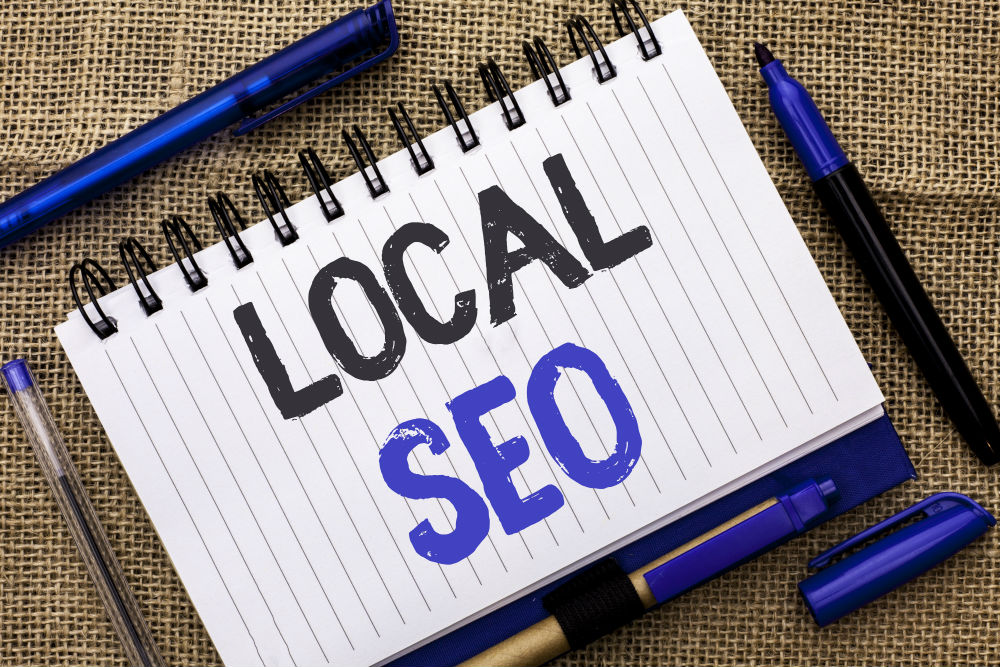When it comes to developing a search engine optimization strategy, clear goals must be established. This includes determining the target market of the SEO campaign, and weighing the benefits of a national vs. a local focus. While national, enterprise SEO campaigns are more beneficial to large operations–such as corporations with countrywide distribution–small businesses who already naturally attract the local market are best suited for local SEO.
Local SEO is simply SEO that is geared towards increasing web traffic and conversions from local community members. Given that nearly half of all Google searches are inquiring about local products, services, or information, the necessity for local SEO for small and medium-sized businesses is clear.
Local SEO, while mostly beneficial to small businesses, is also utilized by national corporations to promote individual locations. Franchise store fronts, for example, although technically national operations, can engage in local SEO to increase local business. Many nationally-based franchises already have an overwhelmingly local customer base, so local SEO is often just as valuable to these establishments as smaller ones.
The processes for local and national SEO share the same basic methodology, with several key differences. Here are a few distinctive attributes of local SEO that set it apart from a nationwide campaign:
Keyword Location Modifiers
One of the telling characteristics of local SEO keywords is the use of location modifiers. Location modifiers are simply insertions of keywords that denote the service area of the product or service. Local SEO often relies on location modifiers to reach local customers, as most local consumers will search for a business using a query along the lines of “restaurants near me” or “best takeout food in Seattle”.
 Local businesses with multiple locations may use several different location modifiers. In this instance, there should be a separate location page optimized for each modifier. When utilizing location modifiers, it’s important to implement them naturally throughout the web page and web copy. Overusing a location will come off as spammy and may deter viewers from your website.
Local businesses with multiple locations may use several different location modifiers. In this instance, there should be a separate location page optimized for each modifier. When utilizing location modifiers, it’s important to implement them naturally throughout the web page and web copy. Overusing a location will come off as spammy and may deter viewers from your website.
Google My Business Optimization
Every business, big or small, should always prioritize their Google My Business listings. This is especially crucial in the case of local SEO. When users search for businesses on Google, the first results are often returned in the “map pack”, which lists the most relevant businesses located close to the searcher’s location. These map packs are highly coveted and competitive, and there is no clear-cut path to attaining map pack status. Rather, the more sound and airtight your local SEO is, the better chance you have at being featured in this snippet.
Basic Google My Business optimization is as simple as filling out as much information as possible in your Google business listing, and ensuring that all of that information is accurate. A wrong address or phone number on a Google listing can be detrimental to your SEO efforts, as it will immediately turn away confused customers. Businesses should also include images of their storefront and location to provide a visual aid.
Link and Citation Building
The importance of links–which are considered a form of citation–cannot be overstated in SEO. A robust portfolio of backlinks tells Google that your website is a reliable, trustworthy source of information, as it demonstrates that other people are linking to your website and therefore consider it informative and legitimate.
The same applies for local SEO, with greater emphasis on obtaining links and citations from local sources. Local directories, online publications, and social networking sites are excellent sources for obtaining links, but the process of link development is tedious, challenging, and can even be disheartening. The best way to increase backlinks to your website is to provide informative, relevant and engaging content for your visitors; this is what drives readers to see its value and share it with others.
Reviews
Online reviews have become the new standard by which consumers judge businesses. While this has positive and negative connotations, it reinforces the notion that businesses need to be prioritizing reviews, and in particular, garnering positive reviews from satisfied customers. When it comes to local SEO, the more verified local reviews you can get, the better.
While responding to as many customer reviews as possible is good practice for reputation management, it can also establish you as a caring and sympathetic business owner, which can further lead to more positive reviews and business overall.
For most small businesses, a local focus is the cornerstone of success in an SEO campaign. rmarketing™ connects small businesses of all industries to expert SEO professionals who have a proven track record in increasing search rankings for local businesses using local SEO tactics. To get started with a local SEO campaign today, contact us!



